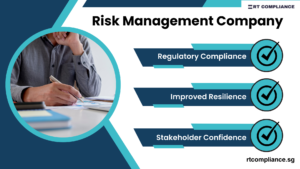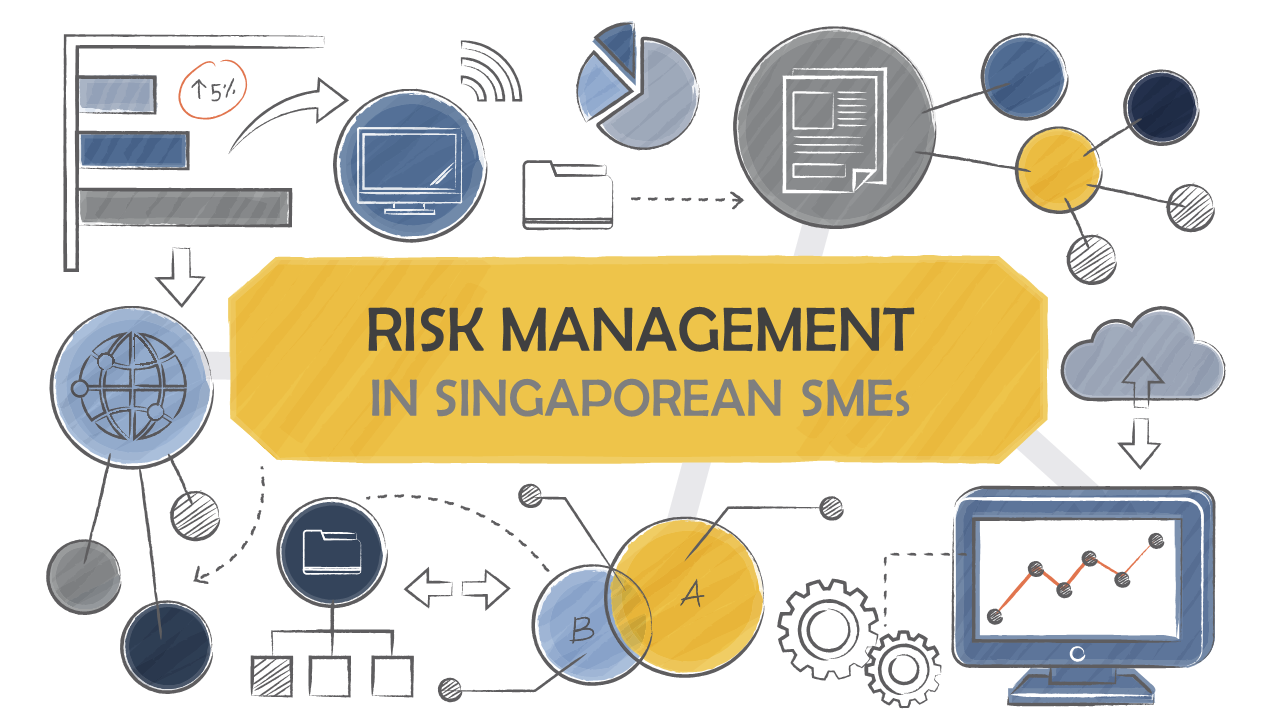Top Risk Management Company in Singapore | Enterprise & Operational Risk Services
Risk management is essential for businesses worldwide, but hiring a risk management company in Singapore holds unique importance. With Singapore’s open economy, heavy reliance on global trade, and strict MAS risk management compliance requirements, businesses must adopt tailored enterprise risk management solutions to stay resilient against financial, operational, and regulatory shocks. That’s why risk management is so essential for businesses in Singapore. In this blog article, we will explore the concept of risk management and how it applies to businesses in Singapore. We will also discuss some of the specific risks businesses in Singapore face and how they can be managed.
Understanding Risk Assessment in Singapore: Compliance, Strategy & Frameworks
Risk assessment is identifying, analyzing, and evaluating risks to organizational operations (including personnel, property, information, and other assets) and making decisions on appropriate risk responses. It is an ongoing process that should be revisited regularly to keep up with changes in the environment and the organization.
There are various risk assessment methods, but all should aim to identify potential risks, assess their likelihood and severity, and develop plans for addressing them. The results doing a risk assessment can be used to inform decision-making about allocating resources for risk management.
In Singapore, risk assessments are required by law for certain types of businesses and organizations. For example, the Workplace Safety and Health Act requires employers to conduct risk assessments as part of their duty of care to employees. Businesses that deal with food or chemicals may also be required to conduct risk assessments under other laws.
Even if there is no legal requirement, it is still good practice for all businesses to conduct regular basis risk assessments as part of their overall risk management strategy. By identifying potential risks early on, businesses can take steps to mitigate or avoid them altogether. This can save time, money, and hassle down the road.
How to Conduct Effective Risk Assessments for Your Business in Singapore
There are many ways to conduct or do a risk assessment, but the most important thing is to be thorough and systematic. Here are some tips on how to check and conduct a risk assessment:
- Identify the risks: The first step is to identify key risks that could impact your business. This includes technology risk management (TRM), cyber risk management, supply chain vulnerabilities, and regulatory compliance under frameworks like ISO 31000 Singapore or AML/CFT risk management guidelines from MAS.
- Analyse the risks: Once you have identified them, you need to analyze them to understand their potential impact on your business. This includes assessing the likelihood of the risk occurring and its potential severity.
- Develop mitigation strategies: Once you have analyzed the risks, you must develop strategies to mitigate them. This could involve insurance, diversification, hedging, or other financial instruments.
- Implement the mitigation strategies: The final step is to implement the mitigation strategies you have developed. This could involve setting up new processes or procedures or changing your business.
Key Risk Areas for Businesses in Singapore: Financial, Operational & Cyber Threats
There are many areas where risk assessments can be applied to your organization. For example, evaluate third-party risk management, cybersecurity risks, and data protection risk management under Singapore’s PDPA regulations. Assess risks linked to your employees, shareholders, vendors, and overall business continuity management (BCM) strategies.
You may want to conduct a risk assessment for each of these areas, or you may want to conduct a comprehensive risk assessment that covers all of these areas. The type of risk assessment you conduct will depending based on the size and structure of your organization, as well as the nature of the risks you are trying to identify.
If you need help with how to conduct a risk assessment, you can consult a professional risk management consultant. They will be able to help you identify the risks that are most relevant to your organization and help you develop a plan to manage those risks.
Who Should Perform a Risk Assessment, and How Often?
A risk assessment is a process that helps identify potential hazards and assesses the likelihood of them occurring. It also looks at the possible consequences of those hazards if they occur.
There are many ways for a company or a business to conduct a risk assessment, but in general, it should be done by someone with knowledge and experience in the assessed area. The assessment should also be conducted regularly (e.g., annually) to ensure that risks are kept up-to-date.
Risk Management Strategy: What to Consider in Singaporean Business Operations
- The type of business activity being undertaken
- The location of the business
- The people who work for the business and who may be affected by its activities
- The equipment and machinery used by the business
- The materials used by the business
- The environment in which the business operates
Benefits of Working with a Professional Risk Management Consultant in Singapore
Recruiting a risk management consultant in Singapore allows companies to succeed in the current complicated environment. Startups, small-medium-sized companies and large financial groups can all hire a consultant to support them in understanding and dealing with risks.
An advantage is being able to fully comply with the MAS’s risk management policies and ISO 31000 standards. Consultants ensure that a company knows the local laws such as PDPA, AML/CFT and BCM and helps it avoid auditing problems and fines.
They also guide companies in setting up and applying a risk management framework made specifically for their industry and size. Businesses in financial technology, e-commerce or high-regulation sectors rely on risk management services for finances, operating over the Internet, with regulations and technology.
Consultants also offer risk advisory help that covers more than one-time reviews. You can rely on them to aid the creation of resourceful risk monitoring and reporting plans, conduct team training and share advice on regulatory risks that support future choices.
Hiring top risk management firms in Singapore ensures that you benefit from skilled workers who can identify and manage weaknesses, guard your assets and boost your business’ ability to bounce back in times of trouble, placing you ahead in competition.
Conclusion
Risk management is a vital part of any business, and Singapore is no exception. By understanding and managing the risks businesses face in Singapore, you can help your business thrive. We hope this article has helps to give insights into risk management in Singapore and how you can use it to grow and get benefits for your business.






